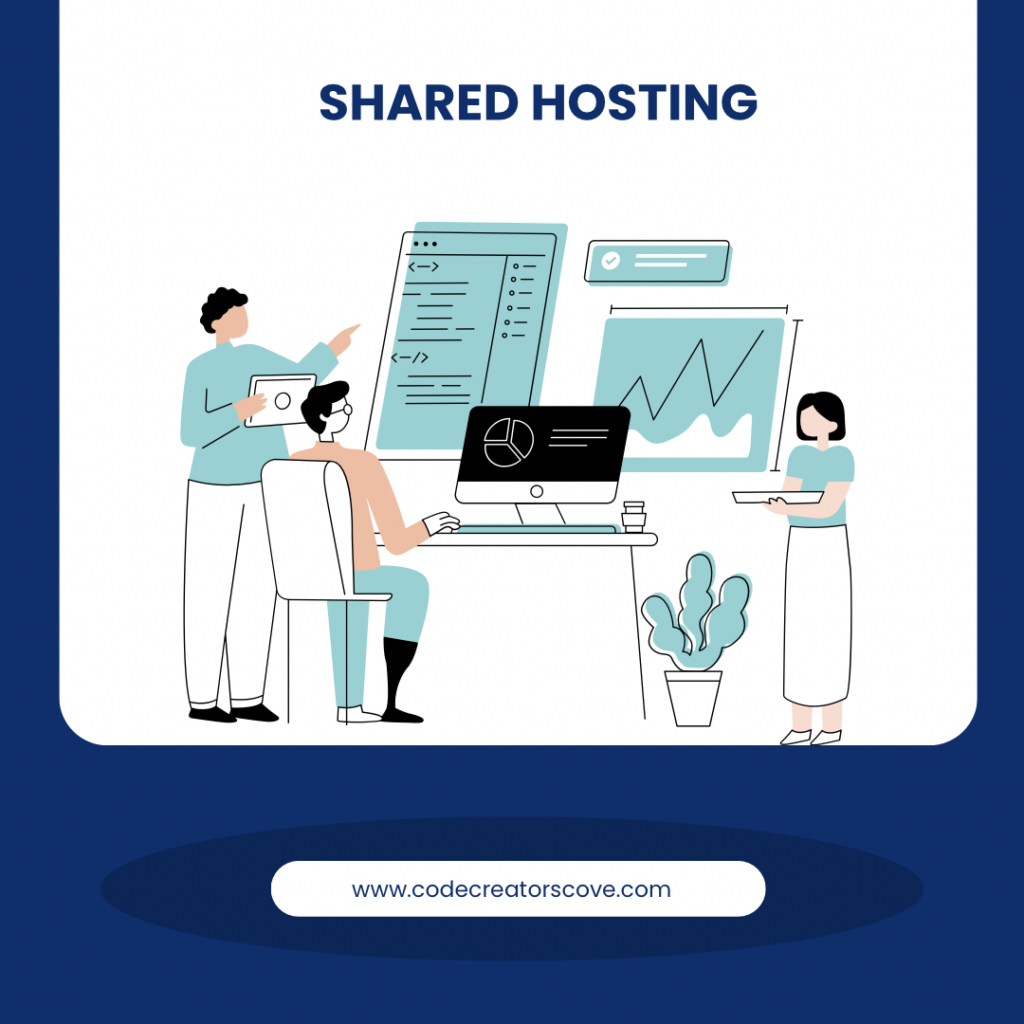When it’s time to select a website host, you’ll encounter numerous options. In addition to choosing the hosting company, you’ll need to determine the hosting package that best suits your needs. Many people opt for shared hosting when they’re building their first websites. In this article, you will discover the ins and outs of shared hosting, from its definition and key features to the benefits and limitations it offers.
What is Shared Hosting?
Shared hosting enables multiple websites to share a single server. Typically, you won’t know which other websites are sharing the server’s resources with you. Each customer usually has a limit on the total server resources they can utilize, as defined by their hosting package.
Opting for shared hosting is the most affordable and cost-effective option. However, this affordability comes with limitations, as we’ll discuss below. Since most hosting companies provide similar amounts of space and storage, it’s crucial to select a trustworthy company.
Features of Shared Hosting
It usually encompasses the following features:
1. User-Friendly Control Panels: Hosting providers often include intuitive control panels, simplifying website, domain, email, and settings management.
2. Beginner-Friendly: Shared hosting is ideal for beginners as it doesn’t demand extensive technical know-how for setup and management.
3. Resource Sharing: CPU, memory, and disk space are shared among multiple websites hosted on the same server.
4. Pre-installed Software: Hosting providers commonly offer pre-installed software like WordPress, facilitating website building.
5. Uptime: This is the duration during which a web hosting system has been running without interruption. High uptimes are indicative of excellent reliability among the top shared hosting companies.
Benefits of Shared Hosting
Some of the benefits includes;
1. Affordability: Shared hosting is typically the most budget-friendly option as costs are distributed among multiple users sharing the same server.
2. User-Friendly Setup: It’s generally easy to set up and manage, making it suitable for beginners or those lacking technical expertise.
3. Maintenance: Hosting providers usually handle server maintenance, software updates, and security measures, easing the workload for website owners.
4. Technical Support: Shared hosting providers often offer technical support to assist users with server-related issues, ensuring smooth website operation.
5. Scalability: While shared hosting has resource limitations, many providers offer options to upgrade to higher-tier plans or other types of hosting as websites grow.
6. Control Panel Access: Most shared hosting plans include a control panel interface (such as cPanel or Plesk), enabling easy management of websites, email accounts, databases, and other hosting aspects.
7. Community: Shared hosting environments often foster a sense of community among users, providing opportunities for networking and support from fellow website owners.
Limitations of Shared Hosting
Although it offers some benefits, but also presents some limitations:
1. Limited Resources: Performance may suffer when other sites on the same server experience high traffic or resource usage.
2. Lack of Control: Users have less control over server configurations and settings compared to other hosting types, limiting customization options for advanced users.
3. Security Risks: Vulnerabilities in one website can affect others on the server. Compromising one site may jeopardize all hosted websites.
4. Potential Downtime: Servers may experience downtime due to maintenance, hardware failures, or issues with other websites, affecting all hosted sites.
5. Performance Issues: Shared resources may lead to performance degradation during peak traffic or if other sites consume excessive resources.
6. Limited Support for High-Traffic Sites: Shared hosting may not suffice for very high-traffic or resource-intensive websites, as shared resources may struggle to handle the load effectively.
Who Can Use Shared Hosting?
Shared Hosting suits Individuals or Companies who;
1. Have little prior experience with web hosting.
2. Seek to reduce expenses.
3. Appreciate hassle-free website upkeep.
4. Need a basic website for individuals or small enterprises.
5. Have an interest in studying WordPress, coding, or site design.
Conclusion
Most individuals entering the realm of website hosting find that the benefits of shared hosting surpass its drawbacks. The low cost saves substantial amounts for those still determining their website’s scale, and its simplicity makes it accessible to everyone, irrespective of their technical expertise.


